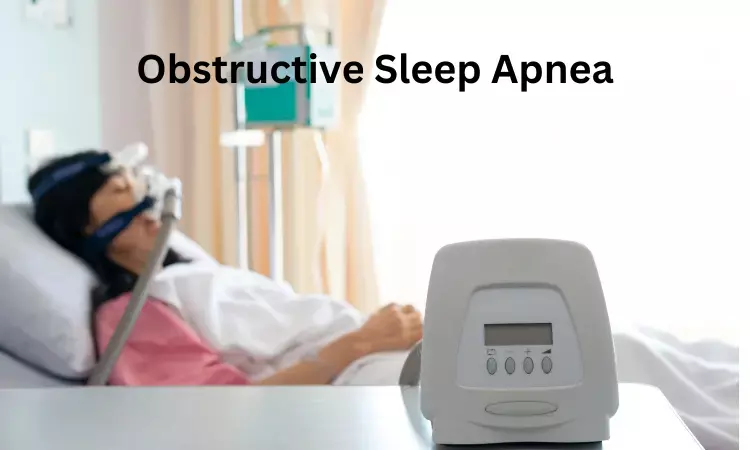- Home
- Medical news & Guidelines
- Anesthesiology
- Cardiology and CTVS
- Critical Care
- Dentistry
- Dermatology
- Diabetes and Endocrinology
- ENT
- Gastroenterology
- Medicine
- Nephrology
- Neurology
- Obstretics-Gynaecology
- Oncology
- Ophthalmology
- Orthopaedics
- Pediatrics-Neonatology
- Psychiatry
- Pulmonology
- Radiology
- Surgery
- Urology
- Laboratory Medicine
- Diet
- Nursing
- Paramedical
- Physiotherapy
- Health news
- Fact Check
- Bone Health Fact Check
- Brain Health Fact Check
- Cancer Related Fact Check
- Child Care Fact Check
- Dental and oral health fact check
- Diabetes and metabolic health fact check
- Diet and Nutrition Fact Check
- Eye and ENT Care Fact Check
- Fitness fact check
- Gut health fact check
- Heart health fact check
- Kidney health fact check
- Medical education fact check
- Men's health fact check
- Respiratory fact check
- Skin and hair care fact check
- Vaccine and Immunization fact check
- Women's health fact check
- AYUSH
- State News
- Andaman and Nicobar Islands
- Andhra Pradesh
- Arunachal Pradesh
- Assam
- Bihar
- Chandigarh
- Chattisgarh
- Dadra and Nagar Haveli
- Daman and Diu
- Delhi
- Goa
- Gujarat
- Haryana
- Himachal Pradesh
- Jammu & Kashmir
- Jharkhand
- Karnataka
- Kerala
- Ladakh
- Lakshadweep
- Madhya Pradesh
- Maharashtra
- Manipur
- Meghalaya
- Mizoram
- Nagaland
- Odisha
- Puducherry
- Punjab
- Rajasthan
- Sikkim
- Tamil Nadu
- Telangana
- Tripura
- Uttar Pradesh
- Uttrakhand
- West Bengal
- Medical Education
- Industry
Single lead ECG and CPAP titration may help manage Sleep apnea at home

Obstructive Sleep Apnea (OSA) is a potentially serious sleep disorder which is caused when breathing repeatedly stops and starts. Snoring loudly and feeling tired even after a full night's sleep, is a concern as it hampers most activities of the day.
Continuous positive airway pressure (CPAP) is effective in treating OSA, as the air flow is introduced into the airways to maintain a continuous pressure to constantly stent the airways open, in people who are breathing spontaneously but adherence to it is often inadequate.
The effective way is to detect sleep apnea events in advance, and to adjust the pressure accordingly, which could improve the long-term use of CPAP treatment. A recent study aimed to develop a machine-learning algorithm using retrospective electrocardiogram (ECG) data and CPAP titration to forecast sleep apnea events before they happen. The study is published in the The Journal of Sleep Research.
Researchers used a support vector machine (SVM), k-nearest neighbour (KNN), decision tree (DT), and linear discriminative analysis (LDA) to detect sleep apnea events 30–90 s in advance. Preprocessed 30 s segments were time–frequency transformed to spectrograms using continuous wavelet transform, followed by feature generation using the bag-of-features technique.
The key findings of the study are
• Specific frequency bands of 0.5–50 Hz, 0.8–10 Hz, and 8–50 Hz were also extracted to detect the most detected band.
• Our results indicated that SVM outperformed KNN, LDA, and DT across frequency bands and leading time segments.
• The 8–50 Hz frequency band gave the best accuracy of 98.2%, and a F1-score of 0.93. Segments 60 s before sleep events seemed to exhibit better performance than other pre-OSA segments.
Researchers concluded that “Our findings demonstrate the feasibility of detecting sleep apnea events in advance using only a single-lead ECG signal at CPAP titration, making our proposed framework a novel and promising approach to managing obstructive sleep apnea at home.”
Reference: Linh, T. T. D., Trang, N. T. H., Lin, S.-Y., Wu, D., Liu, W.-T., & Hu, C.-J. (2023). Detection of preceding sleep apnea using ECG spectrogram during CPAP titration night: A novel machine-learning and bag-of-features framework. Journal of Sleep Research, 1– 12. https://doi.org/10.1111/jsr.13991.
MSc. Neuroscience
Niveditha Subramani a MSc. Neuroscience (Faculty of Medicine) graduate from University of Madras, Chennai. Ambitious in Neuro research having worked in motor diseases and neuron apoptosis is interested in more of new upcoming research and their advancement in field of medicine. She has an engrossed skill towards writing and her roles at Medical dialogue include Sr. Content writer. Her news covers new discoveries and updates in field of medicine. She can be reached at editorial@medicaldialogues.in
Dr Kamal Kant Kohli-MBBS, DTCD- a chest specialist with more than 30 years of practice and a flair for writing clinical articles, Dr Kamal Kant Kohli joined Medical Dialogues as a Chief Editor of Medical News. Besides writing articles, as an editor, he proofreads and verifies all the medical content published on Medical Dialogues including those coming from journals, studies,medical conferences,guidelines etc. Email: drkohli@medicaldialogues.in. Contact no. 011-43720751


